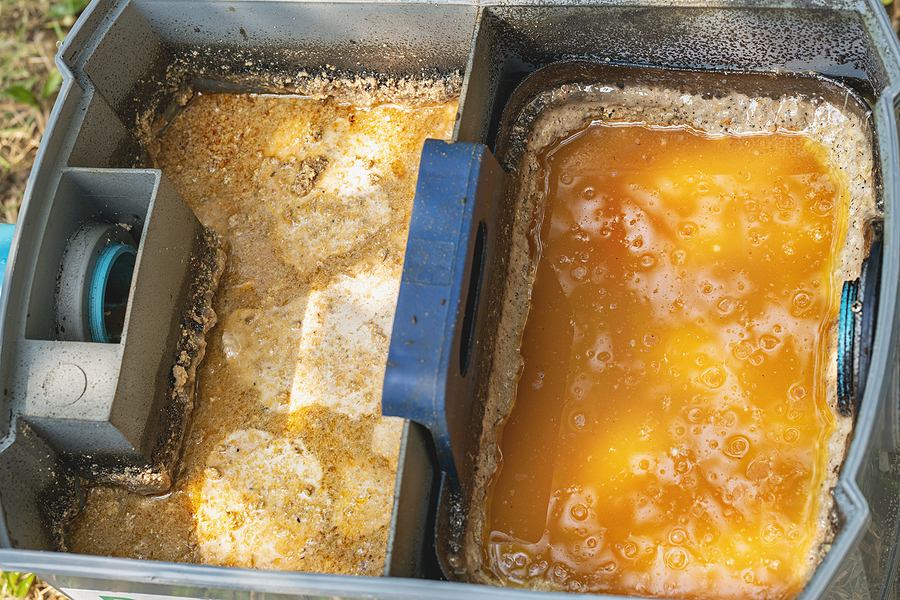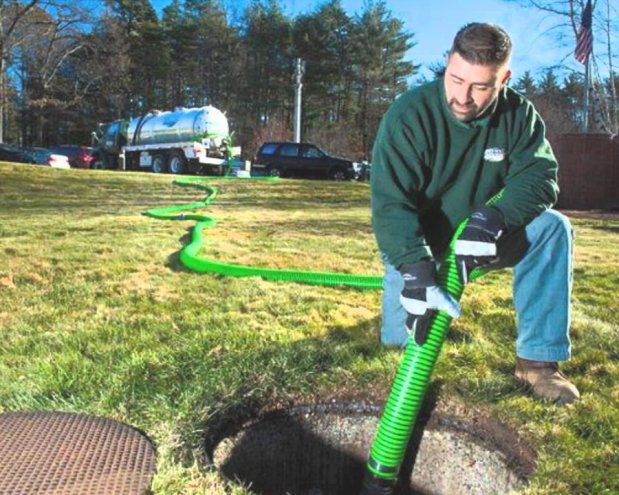
06
The grease trap, often hidden beneath sinks or tucked away underground, is one of the key components of the restaurant business. When neglected and improperly maintained, it can lead to serious issues that are excessively messy. Fats, oil, and grease can be a deadly combination if they cause blockages inside your pipes. Grease traps are made to prevent the buildup of these substances. However, a slip-up in maintenance opens the door for various problems that no business owner would be thrilled to have. Here are some of the outcomes of what can happen if you neglect taking care of the grease trap.
A grease trap is designed on the fact that grease is less dense than water and the two won’t mix together. It works similarly to a septic tank. When wastewater enters a grease trap, it’s separated into three layers. Solids sink to the bottom of the grease trap while clear water exits through an outlet baffle. Many grease traps also include a removable solid strainer to limit the number of solids that sink to the bottom of the trap. Meanwhile, the grease enters through the baffle with the water but floats to the surface. As the grease starts to accumulate in the grease trap, there’s a possibility it escapes through the outlet and makes its way to bodies of water. To prevent this, just like septic tank pumping, the trap must be pumped regularly.
The main task to strictly follow is to keep up regular maintenance at all times. Simply hire a professional to take care of septic tank pumping and grease trap pumping and have them inspect your grease trap. Charlotte Septic Pros also offers services for septic tank repair if anything goes wrong.

12
A single slow drain in your home can feel like a minor inconvenience. Maybe the sink takes a little longer…
Read more
05
Are Slow Drains a Septic Issue or Just a Clog? Slow drains are one of those household problems that start…
Read more
02
What Septic Service Techs See That Homeowners Miss Most homeowners only think about their septic system when something goes wrong.…
Read more
21
Simple Habits That Protect Your Septic System A well-functioning septic system does its job quietly, but the moment something goes…
Read more
14
Pump Now or Pay Later: The Real Cost of Skipping Maintenance A properly functioning septic system is easy to forget…
Read more
11
Why Your Septic System Always Acts Up at the Worst Time Homeowners often feel that septic problems strike at the…
Read more
04
Early Warning Signs Your Septic Tank Needs Pumping For homeowners who rely on a septic system, routine maintenance is not…
Read more
29
Why Does My Septic System Smell Fine One Day and Terrible the Next? If you own a home with a…
Read more
19
Is Your Septic System Overdue? Simple Home Checks You Can Do Today For many homeowners, the septic system is a…
Read more
13
5 Signs Your Septic Tank Is Overdue for Pumping Your septic system works quietly behind the scenes, managing wastewater from…
Read more